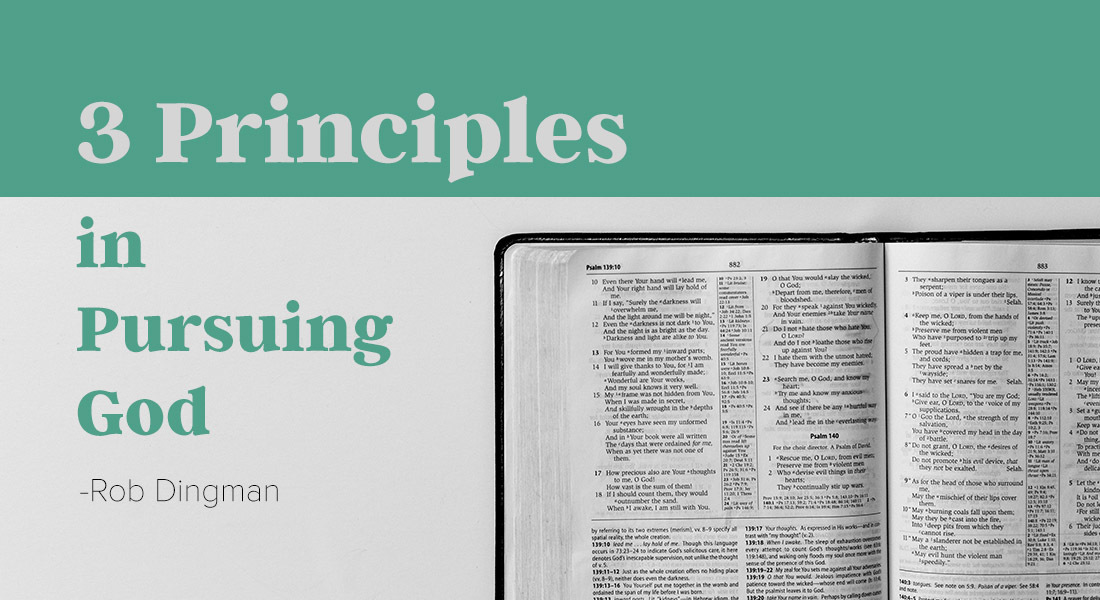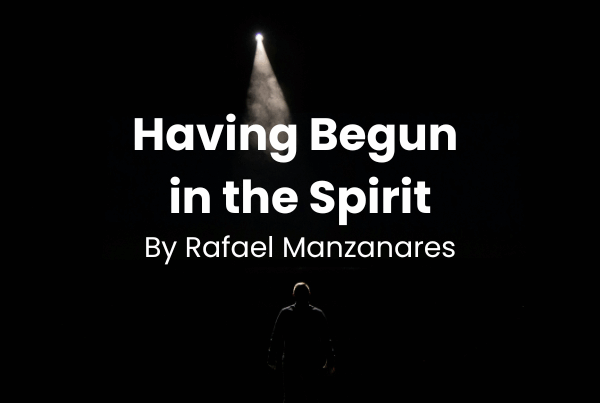
How do you have a decent quiet time? What does one do? And most importantly, why even do it?
George Mueller, who sustained his orphanages by prayer, thought he had to travail in prayer every morning. He would go quite a while working at it, and often not getting very far at it, in his opinion. George changed his mind later in life. He realized the main order of business was that he be happy in the Lord every day. Everything else in his life came out of his relationship with the Lord. So that’s what his morning time was about.
What a great way to spend your morning time: getting happy in the Lord!
How George did it was prayer through the Bible. This is another big change: He put the Word first instead of prayer first. He read, meditated and then he prayed.
When we spend time with the Lord, we end up developing our relationship with Him. I don’t have a quiet time because I’m a pastor. I was not born a pastor. I probably won’t die as one. But I am a man of God. Men of God and women of God pursue their relationship with God.
I want to tell you about three main activities we can do to pursue God. You need all of them.
1. Read the Bible
This is so simple that people miss it, and yet it’s so wonderful. Read the Bible to become familiar with it, not to understand it. Don’t worry if you don’t understand the Bible, just read it every day for the rest of your life. Make it your goal for the Bible to be the first thing you read in the morning and the last thing you read before you go to bed. The more Bible you are familiar with, the more the Holy Spirit can use it to speak to you. You will become familiar with His voice. It’s part of our salvation, that God Himself teaches us (Isaiah 54:13), and He will put things together for us as we have an ongoing read through His Word.
2. Study the Bible
If you study it, you will grow in knowing what it says and what it doesn’t say. Study is looking closely and carefully at the words, their syntax and grammar, and asking questions and getting answers from the text, dictionaries, lexicons and reference books (like Bible encyclopedias). Study is difficult if you don’t know what questions to ask and what you are looking for. So give yourself a treat and consider Living by the Book by Howard Hendricks and William Hendricks, the Holy Grail of how to study the Bible. Just to learn from somebody who really knows what they are doing is a fabulous experience.
3. Meditate in the Bible
This is Psalm 1, Joshua 1 and Romans 12:1-2. Meditation is the spiritual equivalent to digestion. There is only one way for you to live: eat, chew, digest and absorb the nutrient results of digestion. Your fuel is glucose, simple sugar, and you must get that glucose into every cell of your body. What would happen if you ate, chewed, digested, but didn’t absorb the glucose into your cells? That would mean your kidneys would flush the glucose from your blood stream, and it would be as though you had not eaten. Unless you get the glucose all the way into your cells, you will starve to death, even though you eat like a horse. This is not a hypothetical example, it’s a real condition that real people experience known as type 1 diabetes. Type 1 diabetics have to manually get enough blood sugar into their cells, or they will die. There is no substitute for that glucose.
This is also true spiritually: We can read and study and still starve in our souls, because we don’t take in the Word of God by thinking deeply on it. Just as there is only one way to digest and absorb your food, meditation is the only way to internalize the Word of God. If you don’t practice meditating in the Bible, you are missing a vital link in your spiritual nourishment. It’s a possible reason why you look elsewhere for fulfillment than Jesus.
Meditating in the Word of God satisfies because it brings you into contact with the divine, uncreated, eternal love of God. Just like He created you to live physically on glucose, He created you to live mentally and spiritually on His love. There is no substitute for the love of God. You must receive it into the deepest areas of your life, or you will starve.
Let’s say you decide that gasoline costs too much, so you economize and put sugar water into your gas tank instead of gasoline. Is that a viable, cheap alternative? Like it or not, you can only put one kind of fuel in your car; your body runs only on glucose, and only the love of God will satisfy your heart and soul.
Moses prayed, “O satisfy us in the morning with Your lovingkindness, that we may sing for joy and be glad all our days” (Psalm 90:14). David declared, “Because Your lovingkindness is better than life, my lips will praise You”(Psalm 63:3). Put everything in life on one side; put the love of God on the other. Ask David to choose which he will have. David immediately says, “The love of God! I don’t need that other junk; I don’t even need life. But I absolutely need God’s lovingkindness!”
Seeking the Lord every day isn’t spectacular.
It’s like putting a seed in the ground. Planting a seed isn’t a spectacular event. There’s nothing visible to see. Watching a seed grow is not super exciting either. As we seek the Lord, reading, studying, meditating, we are planting seed after seed in our lives. Seeds are small, but do not despise small things: They are highly significant. They contain living blueprints for growing a living entity that is powered from the heavens, steadfast and immovable, able to reproduce itself, benefiting everyone around it by giving strength, shelter, food and pleasure. In nature, we call it a tree. Spiritually, that will be you.
Not planting the Word of God into you means you stay just the same as you are right now. That’s Isaiah 40:7.






